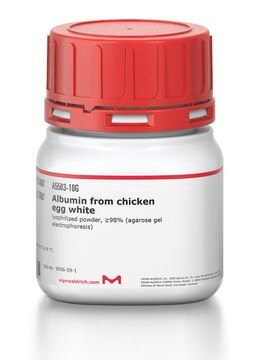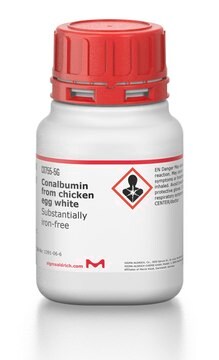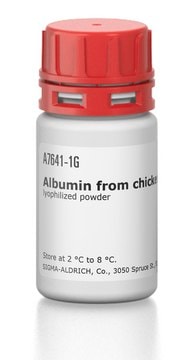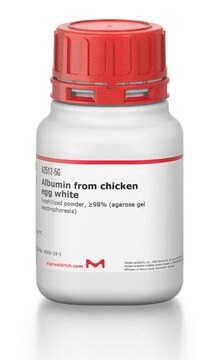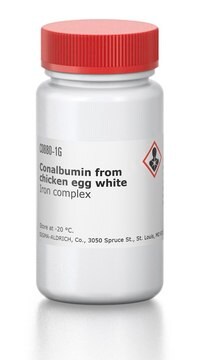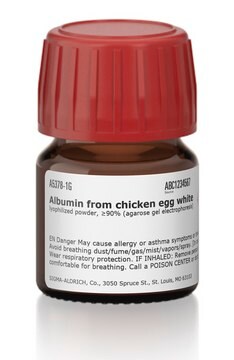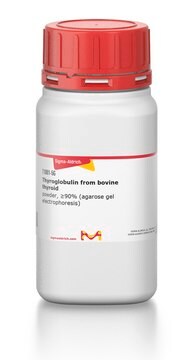C7786
Conalbumin from chicken egg white
BioReagent, suitable for cell culture
Synonym(s):
Ovotransferrin
About This Item
Recommended Products
biological source
chicken egg white
Quality Level
product line
BioReagent
form
powder
concentration
80-100 % protein Biuret
technique(s)
cell culture | mammalian: suitable
solubility
water: 25 mg/mL, clear to slightly hazy, pink
cation traces
Fe: ≤0.02%
UniProt accession no.
shipped in
ambient
storage temp.
−20°C
Gene Information
chicken ... TF(396241)
Looking for similar products? Visit Product Comparison Guide
General description
Application
- as a constituent of Leibovitz 15 (L15) medium involved in preparation of primary neuronal cultures
- to study its adsorption property on a metal surface in the presence of an external electric potential
- to determine its adsorption isotherms in anion exchange chromatography by multivariate analysis
Biochem/physiol Actions
Signal Word
Danger
Hazard Statements
Precautionary Statements
Hazard Classifications
Resp. Sens. 1 - Skin Sens. 1
Storage Class Code
11 - Combustible Solids
WGK
WGK 3
Flash Point(F)
Not applicable
Flash Point(C)
Not applicable
Personal Protective Equipment
Choose from one of the most recent versions:
Already Own This Product?
Find documentation for the products that you have recently purchased in the Document Library.
Customers Also Viewed
Articles
This page segues to comprehensive insights on how serum albumin and other important cell culture components affect the performance of serum-free cell culture systems used for biomanufacturing heterologous proteins including monoclonal antibodies. The page introduces the in vitro chemistry and biochemistry of albumin. These insights may also be applied to ex vivo and tissue engineering applications.
For use as a marker in SDS-PAGE; Albumin from chicken egg white, For use as a marker in SDS-PAGE; L-Lactic Dehydrogenase from rabbit muscle, Type XI, lyophilized powder, 600-1,200 units/mg protein
Chromatograms
application for HPLCOur team of scientists has experience in all areas of research including Life Science, Material Science, Chemical Synthesis, Chromatography, Analytical and many others.
Contact Technical Service